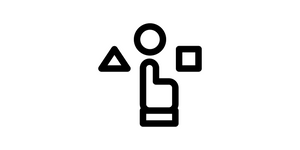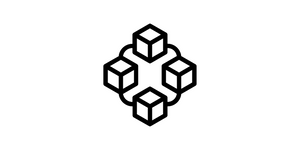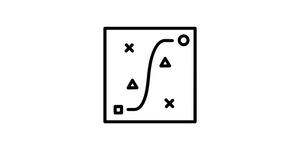On October 10, 2021, Chris (@TfTHacker) facilitated a Twitter Space conversation about how to pick Tools for Thought. In the panel were Jessica Shieh (@JessicaShieh) and Ramses Oudt (@rroudt), who've both been in the note-taking community for several years.
The topic was how we can wisely align our goals with the Tools for Thought that we use. Several listeners chimed in as Jessica and Ramses were musing about how we uncover our specific knowledge work problems and how we then pick the right tool for the job.
Listen to the recording
Some definitions
- TfT = Tools for Thought; often referring to note-taking tools like Roam, Obsidian, Notion, and Evernote (among others).
- PKM = Personal Knowledge Management; the stack of (hardware and software) tools, workflows/processes, and (mental) frameworks people use to learn new skills and do knowledge work.
Extensive notes and timestamps
- 0:00 Introduction
- 0:50 Chris' story of how he came to the Tools for Thought space.
- Starting with Evernote, he thought the tools and features would lead him to a kind of "productvity enlightenment," but they didn't.
- We tend to get so caught up in features that we often lose sight of the goals we initially started to use those tools for (or just skip over the goals as we're intrigued by the features).
- 2:35 Question for the panel: what is your perspective on the goals versus features question?
- 2:45 Ramses on the problem with picking the tool before defining the problem and locking yourself in with tool-specific features.
- Everyone is passionate about something; many in the "note-taking" space just happen to be geeky and passionate about the tools they also use for knowledge work.
- Tools will always change, but the key to productivity is understanding what we're trying to get done.
- Knowledge work is like an art, as our surroundings and tools are always changing so we always need to figure out how to do things.
- What happens a lot in (corporate) organizations is that first a tool is picked and then processes are designed around it, instead of first coming up with a goal, a process, and then picking a tool.
- Specific features (like Roam's block references) can lock yourself into a tool, so it's better to simplify your workflows so that it's easier to apply them to other tools regardless of their specific features.
- 9:10 Jessica on why people tend to focus on tools and not systems.
- People tend to be invested in the tools they use as it takes a lot of time and effort to learn to use a tool and offload your thinking to it. Switching is expensive, but so is investing a tool that's not future-proof.
- Many people are looking for tools to solve their problems, missing the fact that it's about their systems/ways of working with the tool that matters.
- The reason most people obsess over tools: you can point to tools, but system are invisible/abstract so much more difficult to grasp and understand.
- The paradox is that the better your system works, the less you notice is. Only when there's friction (your system's not working) do you notice the system—or lack thereof.
- 2:45 Ramses on the problem with picking the tool before defining the problem and locking yourself in with tool-specific features.
- 13:10 Jessica's approach to problem-solving using three "signals" without getting distracted by the tools.
- Issue > Problem > Friction
- She looks where she wants to go, and where she experiences friction to get to her goal.
- Curiosity-led
- Problems are a lagging indicator, so it's okay to go into discovery mode now-and-then so you can see the possibilities of a tool.
- When you go into discovery mode with a tool, keep reminding yourself you're led by curiosity so that you don't get sucked into rabbit whole of building something new with everything you encounter; you're discovering.
- Who do you want to be?
- Pick people who you'd like to somewhat be like so you can use them as a model. This will help you inform how to work, as you have specific people you can learn from.
- Issue > Problem > Friction
- 16:32 Ramses on the Network Learning Model to get in touch with new ideas.
- On a day-to-day basis we tend to be very focused on our own reality; our work problems and a limited set of solutions is what we mostly see.
- When we're on social media we drink from a firehose of information, one that can bring us in contact with new ideas but can also be very distracting.
- To distill ideas and link them to our specific situation, we need a group or community of experts who we can trust and who are on some level familiar with the ideas we encounter and our specific problem areas.
- 19:10 What should we be thinking about when picking Tools for Thought?
- Ramses: an important first decision is how important the longevity of the data is, or of it should just support thinking in the moment. When data doesn't need to be retained, much more tools can be used (paper included).
- 22:25 How would Ramses help someone pick a tool who wishes to boost their creativity and to connect knowledge?
- Ramses has been mostly focused on Roam, so he's less able to recommend other tools. However, he always asks:
- What is their wanted outcome?
- What steps do they already see as necessary to achieve their wanted outcome?
- What is the first physical action they can take toward their wanted outcome?
- Ramses has been mostly focused on Roam, so he's less able to recommend other tools. However, he always asks:
- 25:00 How would Jessica help someone pick a tool who wishes to boost their creativity and to connect knowledge?
- She would first ask: why are you here and what is it that you're trying to solve/do better?
- It's much better to solve pain points than to be curiosity-driven, as solving pain points will produce meaningful work that will not focus too much on the tool.
- Features will come in play at some point, but not until you've discovered problems and limitations. Things like data privacy are important in some industries but not all.
- Ramses: Unless someone is trying to solve a real problem, they're most likely just interested in the TfT/PKM space as a hobby which makes it much more likely they'll always mostly focus on the tool's individual features and not on its use cases.
- 29:37 The importance of community to discover the right tool for your problem.
- By exploring idea by others, you can gain more clarity about your own pain points and find solutions without re-inventing the wheel.
- For many large corporations, the availability of (independent) knowledge about a tool and how much is documented is often just as important as its features.
- We can all learn from each other and focus our collective brain power on problems many of us face.
- 35:30 How important are the vision and the people behind PKM tools?
- Jessica is increasingly aware how much she puts into tools like Roam, but not having complete ownership over her data makes her feel like she's building something on borrowed ground.
- Without community and room for honest feedback, Jessica doesn't believe a knowledge tool like Roam will be around for long.
- Ramses believes that vision is important, but that sharing your vision is best done by shipping features and improvements. For this, it's also important to be in close contact with your user base to get input about what to work on.
- That does not mean a company should just change direction because of the whims of customers, which makes it a tricky balance.
- 45:54 The importance of partnership between makers of tools and their users, and what we can learn from Readwise in that regard.
- Readwise is a powerful example of a company that's passionate about the problem they're solving, using their product themselves, and are always open to feedback and reasoning with their users in a friendly way.
- Ramses found that the Readwise team is very patient in educating their users, and see it as feedback when their explanations are not clear enough.
- 51:14 Is there an easy path to Personal Knowledge Management?
- Jessica doesn't believe that coming up with a PKM system that works for you is easy, but it is worth it and also fun to do.
- From his own experience and working with many professionals, Ramses doesn't believe PKM is easy as many people are struggling to define the problems they're trying to solve.
- That's one of the reasons he's been looking for a "holy grail" of a workflow to define workflows, but he's starting to believe it's a discovery process for each individual.
- He also believes in communities for PKM, as our experiences and so unique that we cannot learn from how others solved their challenges.
- Ramses believes that one of the problems with copying other people's approach to PKM is that we all have different sets of knowledge that are clustered in our brains. Likewise, everybody's notes will be clustered in another way.
- However, people with similar roles (like writers) can still learn from each other's ways of working, but then need to make those workflows their own.
- 59:03 Alan on using multiple tools.
- He uses several tools in conjunction, like Roam, Obsidian, Logseq, Drafts, etc. Instead of a negative, he sees this as an insurance for the long term as it'll force you to think more about how you work in general than how you work with a specific tool.
- Different tools have different affordances that can (and should) be identified. Then it becomes easier to match use cases and tools, instead of getting bogged down by just using one tool.
- 1:03:19 Chetachi on how different tools match different ways of thinking.
- PKM comes easy to some people, but not to most. That's because finding a tool that fits your way of thinking takes time and effort.
- She also believes that it's worth spending time with other tools as you won't fully know how a tool can help you until you've used it.
- 1:06:05 Why Chetachi choose Obsidian as her main tool over others.
- She started with Notion as she wanted to do project management and PKM.
- Notion turned out to be great for project management, but not work for PKM.
- One of the main drivers for her is that with Obsidian she truly owns her data, which is important as she writes a personal journal in her PKM system.
- She started with Notion as she wanted to do project management and PKM.
- 1:09:28 Maggie on if starting doing PKM is easy.
- She recommends people who get started to read How to Take Smart Notes by Sönke Ahrens and How to Read a Book by Charles van Doren and Mortimer Adler. Those will explain you the core ideas of PKM, but not how to actually implement them.
- In Roam Book Club, Maggie tries to provide concrete entry points to participants to start doing PKM.
- She notices that in the PKM space there's often a focus on the tool when people get stuck, but she recommends this framework to get unstuck without changing tools first:
- Look if you have a technical problem, like not knowing a specific feature that would help you get the job done. However, in the PKM space the focus is mostly on this, while there are other tools.
- See if you have psychological blocks, which Maggie believes is what prevents most people from getting the job done. You may think you don't have the right tool, whereas in reality it may be perfectionism or imposter syndrome that you need to overcome, or that you don't have a clear why to be working on something in the moment.
- Finally, think about if what you want is realistic; maybe there's just no way or tool currently to help you fix what you're trying to get done. Or maybe you're just too exhausted to do mental work in the moment, but you first need to become aware of it.
- 1:17:18 Chris on why the path to PKM isn't easy, but how it can be made easier.
- There are many things you can focus on in your journey, but you need to pick your attention carefully to go where you want to go.
- This is because the journey to being effective with PKM is long.
- He sees that many people enter the PKM space with the expectation that a tool is going to help them, so he sees a role for veteran users to mentor and guide newcomers.
- Ramses notices that taking a mentor role is also important if you want to boost your own learning. However, you don't need to be an expert to be a mentor; just a few steps ahead is enough.
- In his case, being mentored by others helped him learn new skills to a high level, fast. For example, a natural language like Spanish or a programming language like R.
- There are many things you can focus on in your journey, but you need to pick your attention carefully to go where you want to go.




